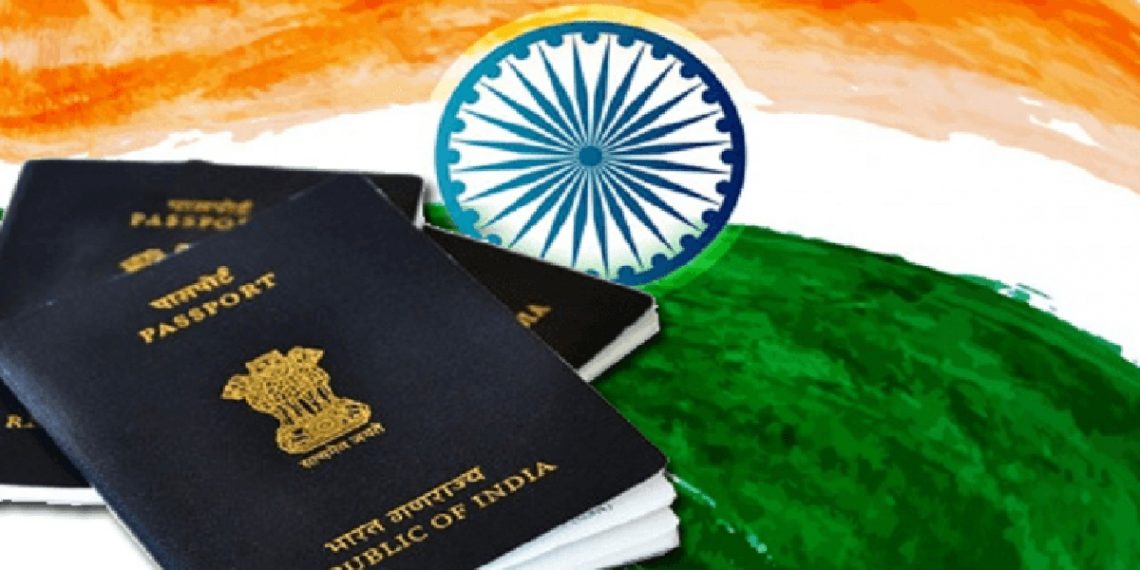The constitutional provisions in regards to Indian citizenship are dealt in Part II of The Constitution of India, 1950. These provisions are confined mainly to defining who are citizens of India at the commencement of the Constitution. These provisions are not exhaustive but fragmentary and skeletal.
India is a quasi-federal state i.e. it is a federation having three levels of government, namely Centre, States and local government, but there is only single citizenship. There is no separate State citizenship and there is only Indian citizenship.
Part II of the Constitution of India emphasises on determining who are the citizens of India at the commencement of the Constitution i.e. on 26th January, 1950.
Article 5-11 categorize Indian citizens into three broad categories :-
- Citizens by Domicile
- Citizens by Migration
- Citizens by Registration
Citizens by Domicile
Article 5 majorly deals with the citizenship acquired through way of domicile. The term domicile is not defined under the Indian Constitution but the general notion of domicile is permanent home. A person’s domicile is the country which is considered by law to be his permanent home.
But merely domicile isn’t sufficient to make a person an Indian citizen. Domicile along with certain conditions are necessary to acquire Indian citizenship, such as :
- Born in the territory of India
- Either of whose parents are born in India
- Who has been ordinarily resident in the territory of India for not less than five years immediately preceding such commencement.
Thus, at least five years residence along with domicile is a pre-requisite for acquiring Indian citizenship.
The same question was dealt by the Supreme Court in the judgment of Central Bank of India V. Ram Narain.[i]The court had ruled that an intention to reside forever in a country where one has taken up his residence is an essential constituent element for the existence of domicile in that country.
Thus, residence in a place is not sufficient to constitute it his domicile. It must be accompanied by the intention to make it his permanent home.
Citizenship by Migration
Post-independence India witnessed large scale of people migrating from Pakistan, which ceased to be a part of Indian territory. Hence, they weren’t entitled to citizenship under Art.5 of Constitution. Therefore, a special and different provision had to be made for them.
Article 6 of the Indian Constitution deals with right of citizenship of the people who migrated to India from Pakistan. This provision lays down that an immigrant from Pakistan is entitled to acquire Indian citizenship if he or either of his parents or grand-parents, was born in India and in addition to it, fulfilled either of two conditions :-
- In case he migrated to India before July 19, 1948, he had been resident in India since the date of his migration
- In case he migrated on or after 19th July, 1948, he had been registered as a citizen of India.
Citizenship by Registration
Article 8 confers Indian citizenship on a person who prima facie has no domicile in India and it seeks to cover the overseas Indian who may want to acquire Indian citizenship.
As conforming to Article 8, a person who, or either of whose parents, or any of whose grandparents was born in India ( before Independence) but who is ordinarily residing in any country outside India, may register himself as a citizen of India with the diplomatic or consular representative of India in the country of residence.
Cessation of Citizenship
Article 7 of The Constitution of India deals with the termination and re-acquiring of the Indian citizenship. It sets out that a citizen of India by domicile (Article 5) , or by migration (Art.6), ceases to be citizen if he has migrated to Pakistan after 1st of March, 1947. But if, after migration to Pakistan, he has returned to India under a permit of resettlement, or permanent return, he can register himself as a citizen of India in the same manner as a person migrating from Pakistan after July 19, 1948.
Conclusion
The provisions relating to Indian citizenship under the Constitution of Indian are not exhaustive. They do not deal with the problem of acquisition of citizenship subsequent to the date of commencement of the Constitution. So in the lieu of Article 11 of the Constitution and Entry 17 of List I of the Indian Constitution, Parliament can make laws in regards to Indian citizenship and its aspects. Thus, in accordance to power conferred upon Parliament, it enacted The Citizenship Act, 1955 to provide for the acquisition and determination of Indian citizenship. This act provides for acquisition of citizenship after the commencement of the Constitution.
(Author: Muskan Krishnani, pursuing B.B.A,. LLB (Second Year) from Amity University, Chhattisgarh.)
[i] Central Bank of India V. Ram Narain. AIR 1955 SC 36




